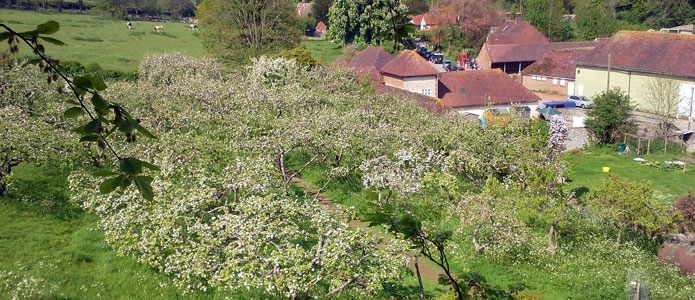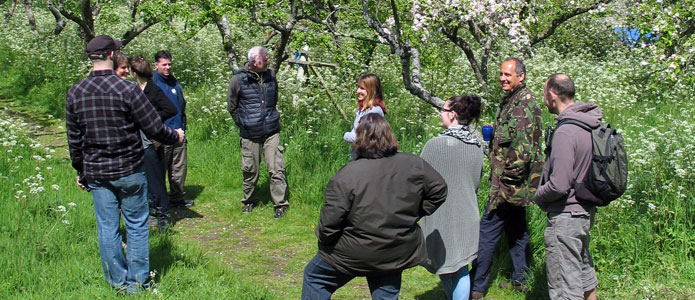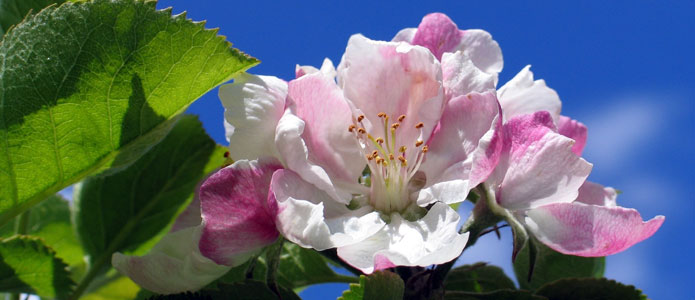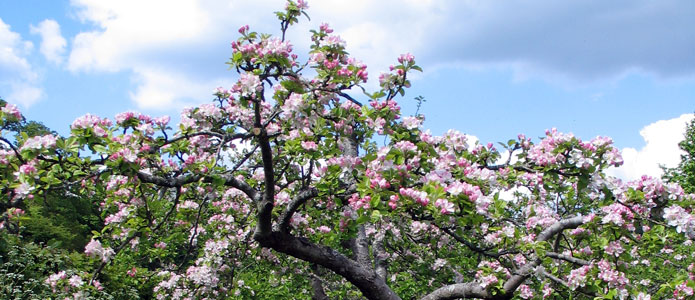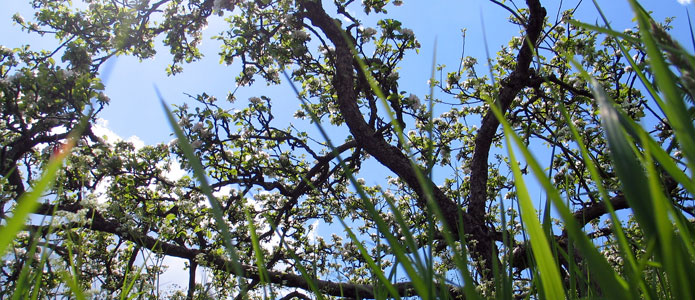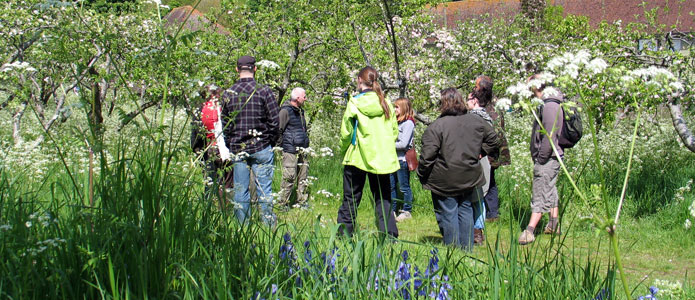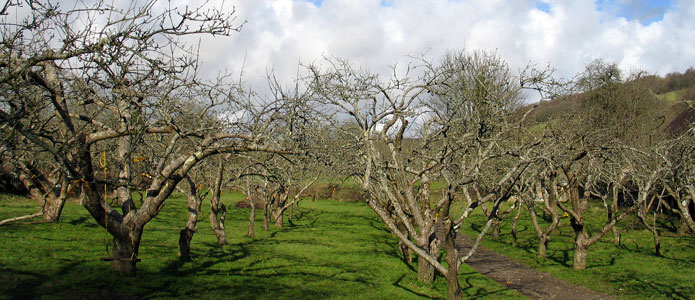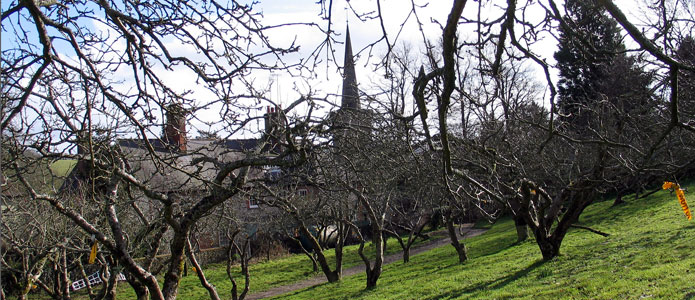“Why does a permaculture organisation plant so many orchards?”
Not a surprising question!
Our projects with fruit and orchards include:
-
- restoring and managing old orchards
- planting school and community orchards
- collecting apples that have gone to waste and making juices and cider
- hosting Apple Day Brighton
- propagating local Sussex apple varieties
- running planting and pruning courses
It might not be immediately obvious how these projects support permaculture principles.
There are actually a number of ways in which growing apples can meet the three permaculture ethics and some of the principles. Let’s take a look at a few.
Earth care
Some of the orchards that Brighton Permaculture Trust manages were really neglected and have now been restored. Their historical value has been recognised by Plant Heritage.
Orchards are great for biodiversity, providing the perfect habitat for many insects, birds and fungi.
All of the orchards we manage are organic, meaning that we don’t use pesticides and fertilisers. This keeps pollutants out of the soil and water.
Once a tree is established, it can provide a large yield of fruit year after year for decades, requiring little human input when compared to the amount involved in annual food crops (fertilizer, planting, watering, weed and pest control).
The soil in our orchards isn’t dug, which is beneficial for the soil structure and the many organisms that live there. Our orchards are underplanted with wildflowers to help with pollination and provide food for the insect pollinators. We keep the grass and wildflowers in check by scything, a technique that doesn’t require any fossil fuels.
Trees protect soil from erosion, reduce surface rainwater run-off and help reduce flood risk. Trees also benefit the air and help combat climate change by using carbon dioxide and releasing oxygen.
By processing and selling the juice close to where the apples are grown – and by not cold storing the apples – means that the apples have a smaller ecological impact and a smaller carbon footprint than if they had come from overseas.
People care
Fresh, seasonal, organic food is thought to be healthier for people (and we think it’s tastier, too!).
On a wider level, it’s rewarding to see community orchards help bring communities together. Helping schools plant orchards mean we’re helping children learn about where their food comes from.
The planting of an orchard itself is also rewarding as volunteers benefit from working outside, getting to meet other like-minded people, eating fresh, local and organic food, learning new skills, and having fun. For those that get paid for their work, planning and planting orchards contributes to their livelihood.
Some would argue that orchards are beautiful as well – an often overlooked aspect of people care!
Fair Shares
Brighton Permaculture Trust’s scrumping project collects apples that would otherwise have gone to waste and uses them for juices, cider, chutneys, and some of the many delights on sale at Apple Day Brighton each autumn at Stanmer Park.
As an organisation, we’re committed to sharing our knowledge and expertise about growing apples, both locally and overseas. We’ve collaborated with French apple producers through our Orchards without Borders project, and we’ve sought to reach a wider audience with a YouTube video sharing our tree-planting tips.
Produce no waste
The scrumping project uses what would have been a waste product – apples left hanging on the tree – and transforms them into something both useful and delicious, namely juices, cider, cider vinegar and chutneys!
Use and value diversity
We don’t grow just one variety of apple in our orchards. Rather, we have a commitment to planting a greater variety of fruits which flower and ripen at different times.
Brighton Permaculture Trust has worked hard to document, propagate, and plant out a number of varieties of Sussex apples. These trees are often better adapted to the local conditions, and they keep alive part of the story and the culture of Sussex ( learn more). Our work has been recognised by Plant Heritage, which made our Sussex apple collection part of the national collection.
Integrate rather than segregate
We have worked with many other organisations, like the Community Chef, to inspire people to cook with apples in different ways. Brighton Permaculture Trust has also been sharing its experience with apple growers in Normandy and creating beneficial connections.
Permaculture and apples go hand in hand
Hopefully, it’s clear now why our work with fruit and orchards fits so perfectly with our permaculture ethic. If you feel inspired to get involved, we urge you to sign up as a volunteer for scrumping opportunities aplenty, attend our free Apple Day Brighton event held in September at Stanmer Park, or browse our range of fruit/orchard courses.
